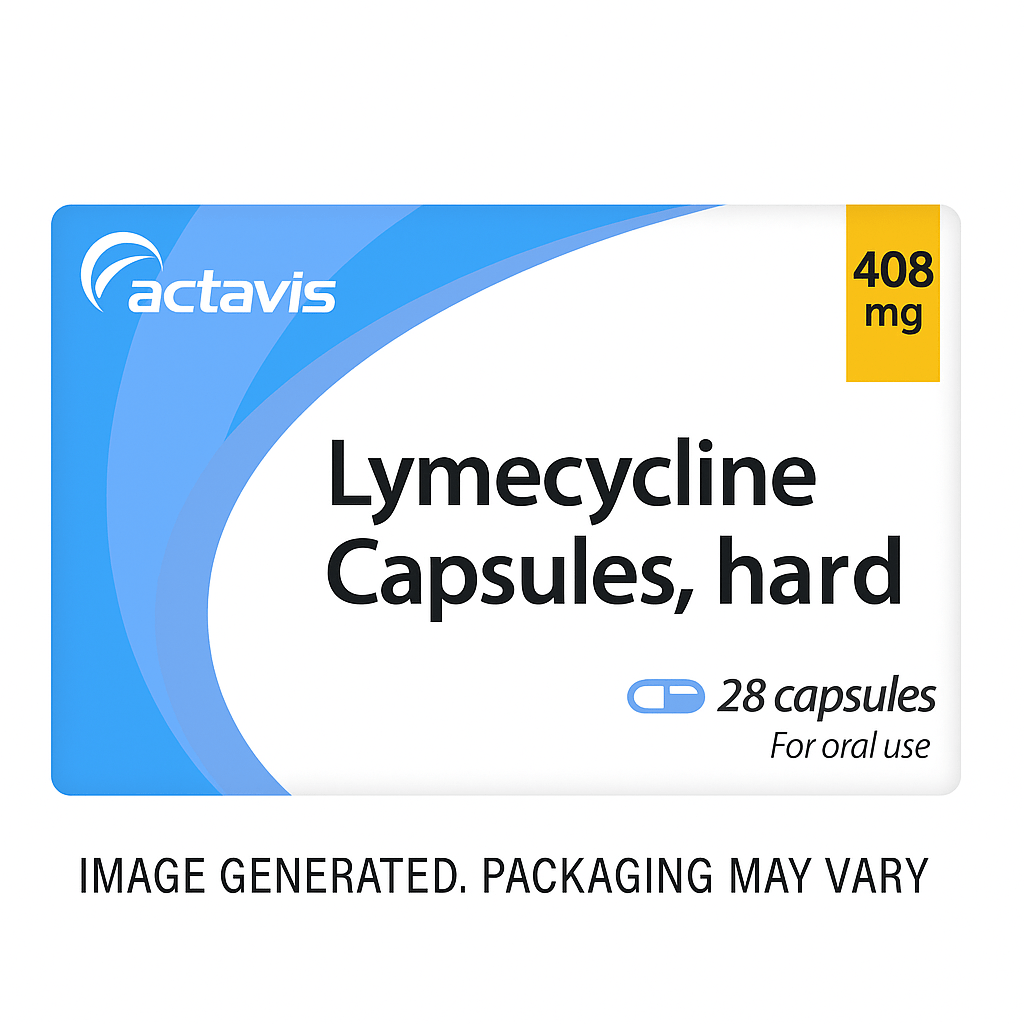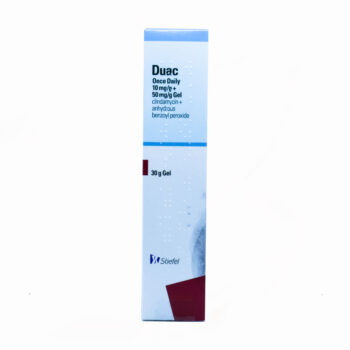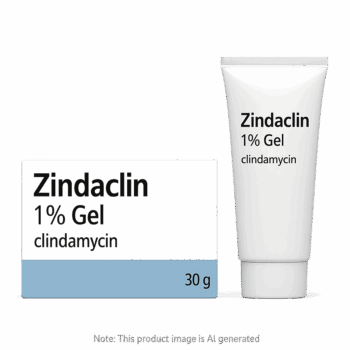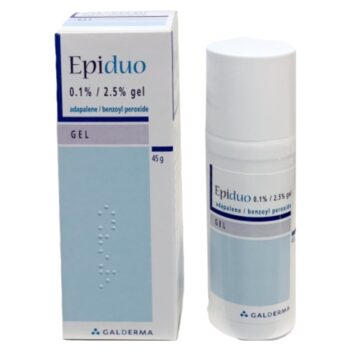Description
Lymecycline is a prescription-only oral antibiotic commonly used to treat acne vulgaris and other bacterial infections such as respiratory tract infections, urinary tract infections, and certain sexually transmitted diseases. It belongs to the tetracycline class of antibiotics and is especially valued for its efficacy in treating inflammatory acne that is resistant to topical therapies. Lymecycline is suitable for adolescents and adults, and it works best as part of a long-term acne management plan, often in combination with non-antibiotic treatments such as topical retinoids or benzoyl peroxide.
How It Works
Lymecycline works by inhibiting bacterial protein synthesis. It targets the 30S subunit of bacterial ribosomes, preventing bacteria from producing the proteins they need to grow and multiply. This bacteriostatic effect halts the spread of infection and allows the immune system to eliminate the remaining bacteria. In acne, Lymecycline is particularly effective at targeting Cutibacterium acnes, a bacteria involved in the development of inflamed spots, pustules, and nodules. As a systemic treatment, Lymecycline reduces bacterial levels deep within the skin and hair follicles, helping to decrease inflammation and clear up breakouts over time.
Why Choose Lymecycline
Lymecycline is often preferred over older tetracyclines due to its improved gastrointestinal tolerance and convenient once-daily dosing. It has a favourable absorption profile and causes fewer side effects compared to some other oral antibiotics. Its effectiveness in reducing moderate to severe acne lesions, particularly inflammatory types, makes it a key option in dermatological care. When combined with topical agents, Lymecycline can help achieve visible skin improvements within 6–12 weeks, improving confidence and quality of life for many patients. It is also useful in treating certain bacterial infections beyond dermatological use, offering flexibility for prescribers.
Important Note
Lymecycline should only be used under medical supervision and is not suitable for children under 12 years of age or during pregnancy and breastfeeding. It may reduce the effectiveness of oral contraceptives and should be used with caution in patients with liver or kidney impairment. It does not treat viral infections and should be taken as prescribed to prevent resistance. Avoid prolonged sun exposure while taking Lymecycline, as it may increase photosensitivity.




